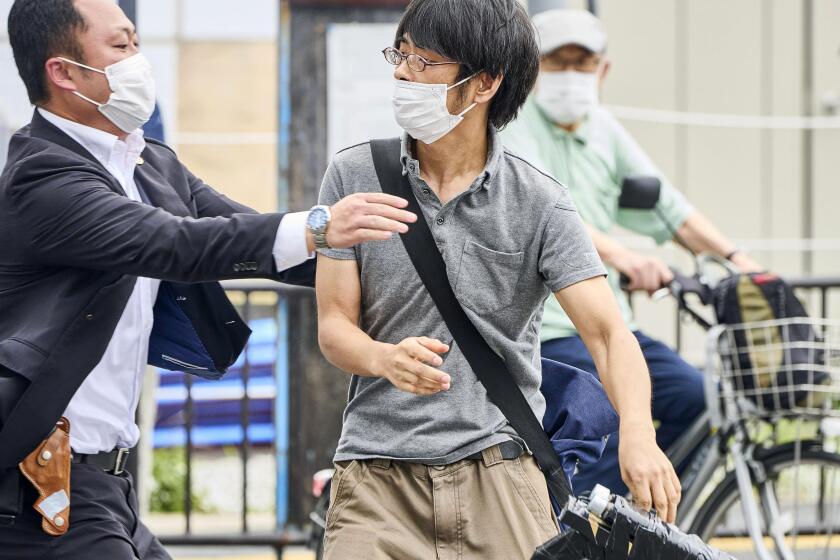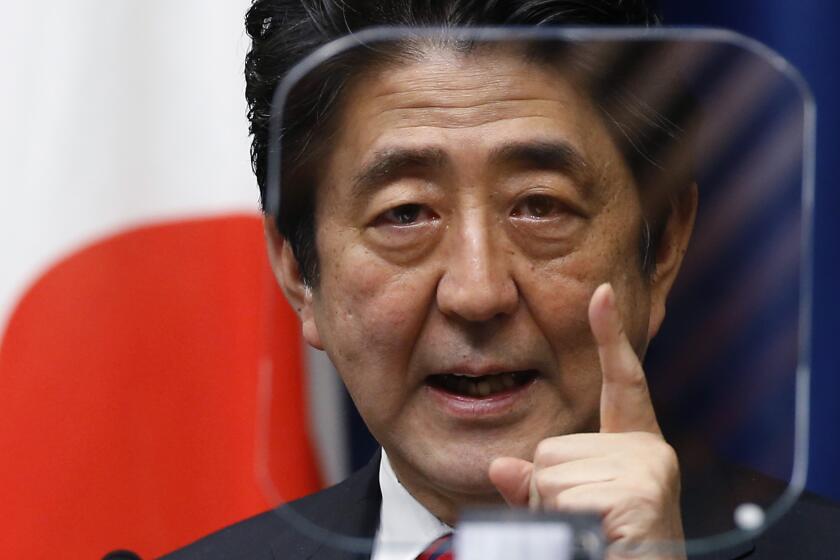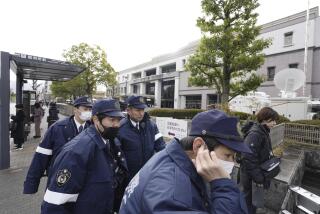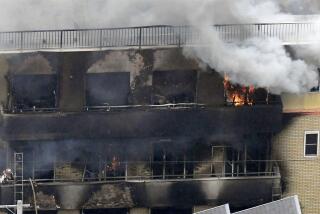Bullet marks from errant first shot found near Shinzo Abe assassination site
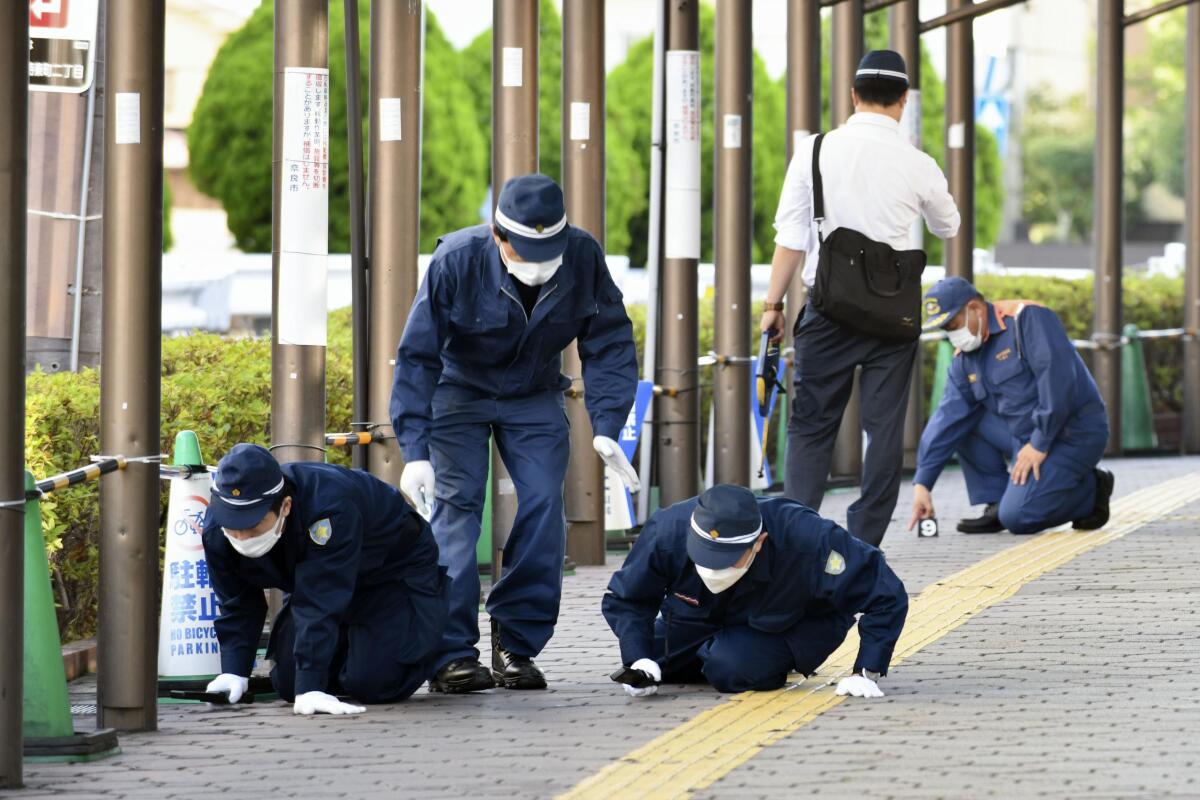
- Share via
TOKYO — Police said Wednesday that they have found what they believe are several bullet marks on a building near the site of former Prime Minister Shinzo Abe’s assassination in western Japan, apparently made by an errant first shot fired from the alleged killer’s double-barreled gun.
Abe, the country’s longest-serving prime minister, was gunned down Friday during a campaign speech near a crowded train station in the city of Nara.
The assassin’s first shot narrowly missed Abe. A bullet from the second shot, fired seconds later from behind Abe, fatally struck him just as he turned around, apparently in reaction to the initial explosive sound.
The suspect, Tetsuya Yamagami, 41, was arrested on the spot Friday. He can be detained for police investigation for up to three weeks before prosecutors decide whether to charge him with murder.
On Wednesday, police found several marks in the wall of a building about 90 yards away from the assassination site. Police said they believe bullets from the gunman’s first shot, or fragments of them, hit the wall after missing Abe and pierced an election vehicle parked nearby. The bullet marks on the wall and in the vehicle match, police said, suggesting they were fired from the same weapon.
Police confiscated the homemade gun that the suspect used to kill Abe when he was arrested. The taped-up 16-inch gun made of two iron pipes was designed to release several bullets per shot, police said. Police said they confiscated several other similar weapons from Yamagami’s apartment.
A crude weapon of metal and wood parts was used to assassinate the former prime minister of Japan, which has some of the world’s strictest gun laws.
Police and Japanese media have suggested that the suspected assassin decided to kill Abe after seeing reports about his ties to the Unification Church. The suspect reportedly was upset because his mother’s massive donations to the church had bankrupted the family.
The assassination of Abe has shed a light on the ruling Liberal Democratic Party’s links to the Unification Church, which is known for its conservative and anti-communist stances and its mass weddings.
Tomihiro Tanaka, head of the Japanese branch of the South Korean-based church, confirmed on Monday that Yamagami’s mother was a member. Tanaka said Abe was not a member but may have spoken to groups affiliated with the church.
Police this week inspected a building related to the church in Nara after the suspect told investigators he had test-fired a homemade gun the day before the assassination to figure out how powerful it would be. They found several holes in the wall of an unrelated office next door, which the suspect might have believed were part of the church, police said.
Shinzo Abe was a political blueblood groomed for power, but his vision of a conservative and nationalistic Japan sparked both exultation and outrage.
Abe’s assassination has shaken Japan, one of the world’s safest nations, with some of its strictest gun laws. Police have acknowledged possible lapses in guarding Abe and announced plans to set up a task force to review safety procedures.
Hundreds of people filled the sidewalks outside the Zojoji temple in downtown Tokyo on Tuesday to bid farewell to Abe, whose nationalistic views drove the governing party’s conservative policies.
More to Read
Sign up for Essential California
The most important California stories and recommendations in your inbox every morning.
You may occasionally receive promotional content from the Los Angeles Times.
